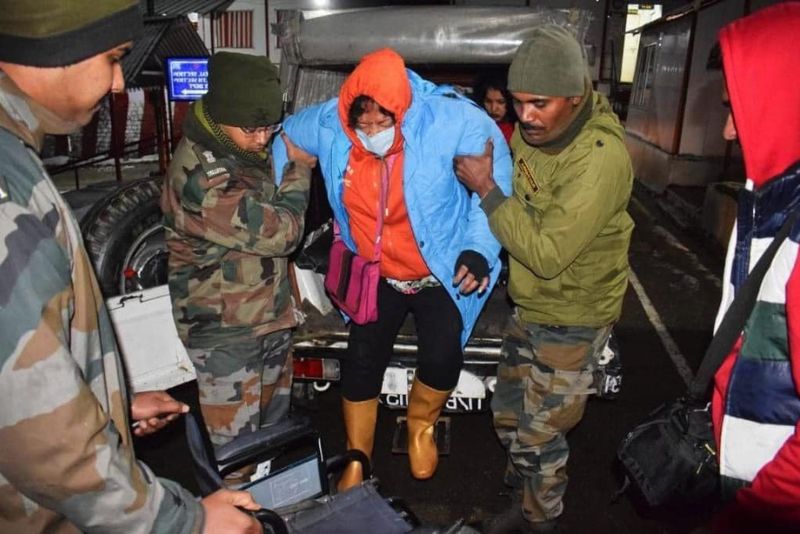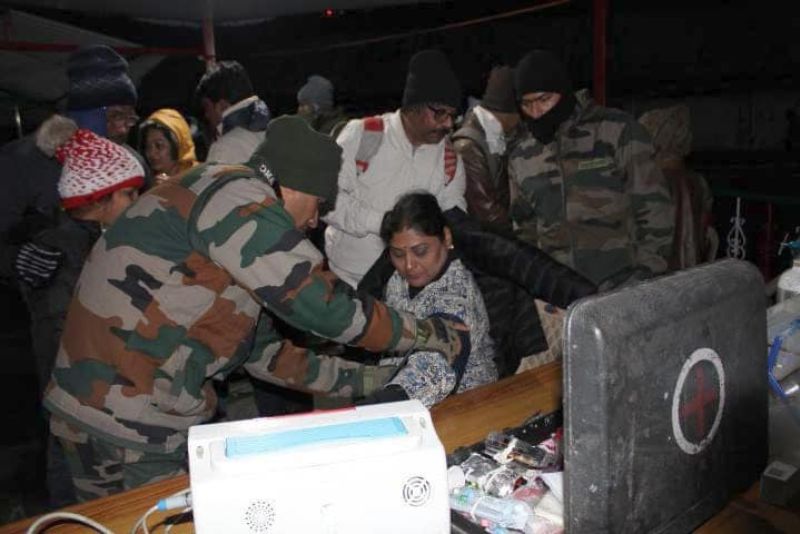
Tourists Rescued at Changu, East Sikkim
The Indian Army has once again shown its commitment to serving the nation by successfully carrying out a rescue mission in East Sikkim. Over 1000 stranded tourists were rescued by the army in a timely and efficient manner, providing much-needed relief to those affected by the unforeseen situation.
Overview
The army’s rescue mission in Changu, East Sikkim has been widely praised for its effectiveness and efficiency. The stranded tourists were rescued from several remote locations, including high-altitude regions, which posed a significant challenge to the rescue teams.
The operation was carried out in a coordinated manner, with multiple teams working together to ensure the safety and well-being of the stranded tourists. The army deployed a range of resources, including helicopters, vehicles, and personnel, to ensure that the rescue mission was successful.
Details of the Rescue Mission
The army’s rescue mission in East Sikkim was a complex operation that required careful planning and execution. The mission involved multiple phases, each of which had its own unique challenges.
Phase 1: Search and Rescue The first phase of the mission involved a search and rescue operation to locate the stranded tourists. The army deployed multiple teams to various locations in East Sikkim, including high-altitude regions, to search for the tourists.
The teams used a range of resources, including vehicles, and personnel, to search for the stranded tourists. The search operation was carried out in a coordinated manner, with each team providing regular updates on their progress.
Phase 2: Evacuation Once the stranded tourists were located, the army deployed helicopters and vehicles to evacuate them to safety. The evacuation process was carried out in a timely and efficient manner, with the army providing necessary medical assistance to those who required it.
The army personnel were well-equipped to handle the rescue mission, with each team carrying essential supplies and equipment, including medical kits, food, and water.
Phase 3: Rehabilitation After the tourists were evacuated to safety, the army provided necessary support and assistance to ensure that they were properly rehabilitated. The army provided medical assistance to those who required it and ensured that the tourists were provided with adequate food and shelter.
The army also provided necessary transportation and logistical support to ensure that the tourists were able to return to their homes safely.

Conclusion
The Indian army’s rescue mission in East Sikkim is a testament to its commitment to serving the nation and providing assistance to those in need. The successful completion of the rescue mission has provided much-needed relief to the stranded tourists and their families.
We hope that this article provides you with a comprehensive understanding of the army’s rescue mission in East Sikkim. If you require any further information or assistance, please feel free to contact us.
Gangtokian Web Team


















































